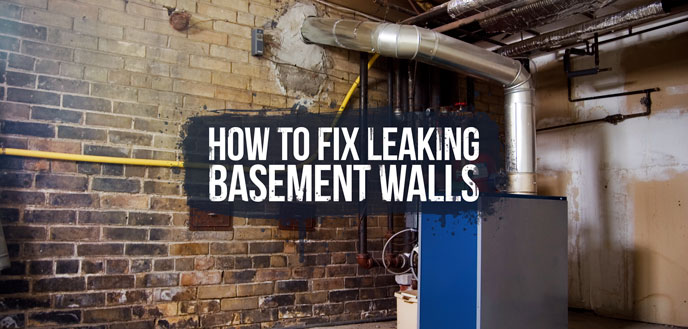Basement leaks can be a major issue for many homeowners, resulting in costly repairs and potential damage to personal property. Fortunately, with a little bit of knowledge and some DIY skills, you can fix these leaks and protect your home. We've gathered a few helpful tips and tricks to help you become a basement leak repair expert.
Identify the Source
The first step to fixing a basement leak is identifying the source of the problem. While leaks are often caused by cracks in the walls or foundation, they can also be caused by issues with the plumbing or external drainage. Take a close look at your basement to see if you can identify any obvious sources of moisture. If you're having trouble locating the leak, it's best to consult with a professional to avoid causing even more damage.
Repair Cracks in the Walls or Foundation
If you've identified cracks in your basement walls or foundation as the source of your leak, it's important to act quickly to repair them. You can purchase sealants and epoxies specifically designed for this purpose at most hardware stores. Follow the instructions carefully to properly seal the crack and prevent moisture from seeping through. If you're dealing with a larger crack or a more serious issue with your foundation, it's best to consult with a contractor who specializes in foundation repair.

One thing to keep in mind when repairing cracks in your basement walls or foundation is that you may need to address any underlying drainage or grading issues in order to prevent future leaks. This may involve rerouting downspouts or regrading soil around the foundation.
Install a Backup Sump Pump
If your basement is prone to flooding, even after you've repaired any cracks, it may be a good idea to install a backup sump pump. This device can help to prevent flooding in the event that your primary sump pump fails or if there is a power outage. There are several different types of backup sump pumps available, including battery-powered and water-powered options.
Seal Plumbing Penetrations
In some cases, leaks in your basement may be caused by gaps around plumbing pipes that pass through concrete walls or floors. These gaps can allow moisture to seep through and cause damage over time. To prevent this from happening, it's important to properly seal plumbing penetrations with a waterproof sealant. You can also install backing material like foam backer rod to help ensure a tight fit.

Address External Drainage Issues
If your basement leak is caused by poor external drainage, you may need to take steps to improve the way water is flowing away from your home. This could involve installing a French drain or directing downspouts further away from the foundation. You may also need to regrade the soil around your home to ensure that water is flowing away from the foundation instead of towards it.
Install a Dehumidifier
If your basement is constantly damp or humid, even after you've fixed any leaks, it's important to address this issue as well. Installing a dehumidifier can help to remove excess moisture from the air and prevent mold, mildew, and other issues from developing. There are several different types of dehumidifiers available, including portable units and whole-house systems.

By following these tips and taking steps to prevent future leaks, you can protect your home and avoid costly repairs. Keep in mind that some repairs may require the help of a professional, so don't hesitate to reach out for assistance if needed. With a little bit of effort and know-how, you can become a basement leak repair expert in no time!
